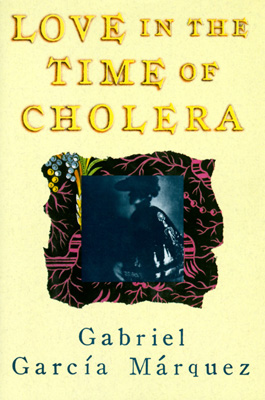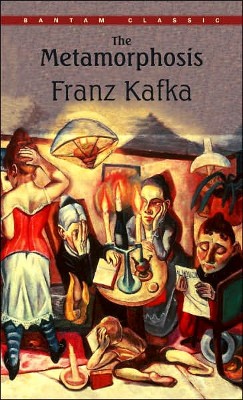
XVII.
Jeter dans la benoîte de sapin
And he put me on board and sent me off from there at the harbor of the sea. The
winds wafted me to the land of (2.75)
Alasiya, and the townsmen came out
against me to kill me. And so I picked through them to the place where
Hatiba,
the princess of the town, was. […] Surely there is one among you that
understands Egyptian. And one of them said: I understand. So I said to him: Tell
my lady that I used to heard as far away
as Ne, where Amon is, that (although)
it is every town that injustice is practiced, it is in the land Alasiya that
justice is practiced. […]
And so she had the people summoned, and they were arraigned. And she said to
me: Spend the night […] –W.F. Wente’s translation of "The Report of Wenamun", a New Kingdom papyrus by an
envoy under
Ramesses XI gathered in William Kelly Simpson’s
The Literature of Ancient Egypt: An Anthology of Stories, Instructions, Stelae, Autobiographies, and Poetry (Yale University Press, 1972)
It was the perfect station because also amongst the drops of time it gave short
teachings about things she might one day need to know. That’s how she learned
that the Emperor Charlemagne was called Carolus in his own land. Admittedly she
never found any use for this information. But you never know, patience always
pays off in the end. She’d also heard that the only animal that doesn’t mate
with its own offspring
is the
horse.
[…] But it seems to me that her life was a long meditation on the
nothing. Except she needed others in order to believe in herself, otherwise
she’d get lost in the successive and round emptiness inside her. She meditated
while she was typing and that’s why she made even more mistakes. –
Benjamin
Moser’s translation of Clarice Lispector’s
A
hora da estrela (1977),
The Hour of the Star (2011)
[…] três novenas e uma
trezena –Caetano Veloso’s
Clarice (
1968)
THE STALLION with the flowering wick / levitating, at
pass— / Der Hengst mit
dem blühenden Docht, / levitierend, in Paß– from Pierre Joris’s translation
(2014) of
Pau, Später, from
Fadensonnen,
Threadsuns (1968)
The WILDHEART,
dishoused / DAS WILDHERZ, verhäuslicht –from Pierre Joris’s
translation (2014) of
Paul Celan's
Highgate, from
Lichtzwang,
Lightduress (1967, 1970)
Herein the
parties agree as
follows—Interrupted news of the ice-harpooned and
oldest
vertebrate,
Greenland shark, whose palimpsest of
placoids similar to teeth and parasitized
eyes is four
centuries
Carbon dated by the inert skeins of its
lens—Uncommon as
chondrites of the
Great Sand Sea, a few muons, the most
abundant particle at sea-level with a charge −1
e
and a spin of 12 of bomb
pulses perceived from the wireless
parietal
Speaking from the
Rio of gold trebles—
Cassia
fistula,
canafístula or
Indian laburnum, featured in what his wife
attests,
his most soothing piece, posthumously,
The Flower Book (
1905) of Edward Burne-Jones—
Particularly Plate
XVIII., or the Golden Shower of Danae of the
Danites of
Laish,
Kush, and improbably both the Danes and
Tuatha Dé Danaan, of the
disinherited fifth son among the death bed's
assembled thirteen
—Kerala’s
emblem of the spring equinox, Latin import
aequus (
equal),
meaning
Vishnu in
Sanskrit,
and then the most balanced
creature on four legs
Xenophon (355
B.C.E.) advised in regarding the colt’s cannons to predict its hands—The
traveling figurine of
Amon whose
feather crest rises out of the solar disk in
Wenamun’s
hold of
umbrella pines
For Karnak; and for fifteen
centuries, enumerator of places,
Apet-sut, the
inundation taking place across 13 degrees Cancer at the helical rising of
Sirius, and liberating the
Djed pillar, the floating
coffin of Osiris of
tamarisk,
sycamore, or
pine—
Clothed only in light
(1883)—The twelve then thirty floors of
Edifício Martinelli (1929 C.E.) go up
in the São Paulo where daughter
Maria Bonomi completes the
matrix of the nest
restored within the felled canopy, in xilogravura,
Apotheosis (1975/1993 C.E.)—
Epopéia Paulista (
2004) of the planned
capital’s logically agreed gridlines; nonetheless, its representative mural
surrounded by crosshatched keel and tonewood mahogany populating thorn forests
of Kannavam—Nothing like the chaotic harbor against the whitewashed,
water-bearing
Arcos da Lapa ruptured every few feet of the bondinho by the
aqueduct's midday eclipses from the oculi, then under spotlights, above the
charioteer who reigns the northern winter Milky Way and Egyptian
ephemerides
near Osiris represented as
Taurus—Witness, the Hans of unspecified eye color; nearsighted, by the
hit and run in the Mercedes, and an
opening for
Cartola’s
uncomplaining roses (1974)—Leo XIII's provision of the golden
device established
by Charlemagne, to the last to abolish slavery,
signing the
Lei Áurea the thirteenth
Of
May 1888—
Princesa Isabel, of the Most Serene House of
Bragança-Orléans, whose heirs claim emphyteutic lease in perpetuity, from the
then
capital, Petrópolis,
where Stefan and Lotte Zweig; since the Synod of
Nîmes (
1284) bearing the enforcement of wearing a rose, immigrate
(1941)—Inspiring to the contracted length or postponed time of cosmic decay
of pions to
muons,
Then Handel (
13 April 1737), as Leo XIII’s collapse saying mass (
13
October 1884), recovers; the first, resulting in the
Messiah (
HWV 56), and the latter, the Leonine prayer to
Michael—Four stellar classes predating the Harvard classification are split by
Father Secchi’s prism
into lines of darkness, or
absorption bands, contained
under Leo XIII’s
Specola Vaticana (
1891), and therein the parietals’s
Role in self-transcendence
beyond collimators and deflectors of
increasing beamlines at
ISIS of the River Thames—Multiplicity into Oneness
bonding the
twelve cubic
edges, the
nikkudim
of
points, from
the egg,
nikud—
Out of
which is born the
new narcissus, the
painting exhibited to Freud (1938), and
its mention dispatched to Stefan Zweig
at his notebooks of
Sternstunden der Menschheit (1927, 1940), of the
twelve decisive
moments; much displaced in translation,
The
Tide of Fortune, in the sense of being star-struck—
Edward Burne-Jones
Stretching ten
leaves of Whatman’s wove paper (dated 1882-3), the first to
receive the kiss of Baskerville’s
Vergil (1757), on canvas for
then the
largest
watercolor,
The Star of Bethlehem (
1891)—
Edward Burne-Jones,
Striving in the medium’s transparency against nine tapestry versions—The
pentimento (1350?) of Giotto’s
nativity (1305) in the Scrovegni Chapel reviving
the volatile extremity six millennia,
by Lubieniecki,
through Leo and Cancer
(1456), whose apparent reflectance of charcoal and return anticipated by Halley
(1682), was at last attributed by Abbé de la Caille (1759)—Striking perennial
sparks of the Eta-Aquarids and Orionids at a closing distance from the orbit of
Pluto (35 AU), the comet’s colloidal plates poured (1835) in the PRB lifetimes,
relay the montage of ESA/Giotto’s flyby (13-14 March 1986)—Magi nourished on
the same pine
Stretching the
cord of foundation and alignment in the direction of
Dante’s
eighth sphere (1331) evolving into four-limbed space consciousness conjoined
by strong forces
from Haeckel’s Gastrea (1872), the vertebrate—
William Flinders Petrie’s encounter with
Charles Piazzi Smyth begins in a monograph;
after the astronomer finished taking
stereographs of the Sheepshanks Equatorial
on
Mount Guajara predating the Observatorio
del Teide (
1963), Tenerife (
1858),
a copy of
Our Inheritance in the Great
Pyramid (1874), is
ingested at thirteen—
Excavations
that lead to the cache of antiquities at University College
(1913), and from the cultural
ingresses of expelled Mameluke vendors, Petrie’s displays
for Society for the Preservation of Monuments of Ancient Egypt (1882-1892) with
Lord Leighton,
Burne-Jones, in attendance,
presiding Henry Wallis, of
The Death of Chatterton
(
1856)—Lecture series follow, the Sphinx oriented with the precession
of the
equinoxes
to Leo (10,970 B.C.E.), with the metaphysical watermarks of the
cubit
nilometer—Concerning the scan for less-dense discontinuities in
filaments of
superclusters; then again, a reinvented program of murals apart from the
unsettling question
of false doors—Detecting Sun through-going
muons
Asking a great deal of the person typing,
incoming the seafloor to exit on the other side against Toulon’s ANTARES
twelve-stringed, inundated
telescope, where neutrinos tracked by
the 42-degree
beam of
Cerenkov blue light by indirect
detection of a cosmic ray’s refraction proportionate to its
muon—
Wenamun (1891, Papyrus
Pushkin 120), with the entreaty for timber
scarcity sanctified by former New Kingdom scribes as the remarkable
tree, whose
unexpected facility for a merchant of the sacred precincts resolved on his
former life as a priest—To come
ashore at Byblos
under the fifth
regnal year
of Ramesses XI (1107-1177 B.C.E.), whose longevity
wehem mesut signifies the return of kingdoms in the same
body, to the
Canaanite temple devoted to Hathor, from the thirteenth nome,
Heliopolis, the
celestial Cow at the Pleiades pointed by Horus as Orion Herschel (2009)
proposed on
Senemut’s ceiling (1473 B.C.E., TT71)—Hathor as Nut, and her latex
issue from profuse sycamore
fig; called there,
shikmim—
Above, in the Milky Way
galaxy, with a cincture;
exposed by
John Herschel
at the Cape of Good Hope (
1847), and
Benjamin Gould, completely
in Argentina (1879), dark matter skewed 20 degrees
from the galactic
plane—Commenting on the clearest evidence of the originator, Nut, whose
varicolored
contour feathers marking the threshold of nested sarcophagus,
appear just then in a beam of dew, and
ladder’s clearest meaning as
maqet, over the Mediterranean so
commonplace to his Cretan sailors—Piecing the
celestial bridge and four rivers
unveiled Christmas
1885; surrounded by the apse angels from
sample Compagnia
Venezia Murano tesserae,
culminating in the choir’s
Tree of Forgiveness from St.-Paul-within-the-Walls (1885-94 C.E.)
on which Edward Burne-Jones
Had gathered progress reported from Rome for nine years—
Lady Nodjmet,
Khaemwaset’s
sister,
Herihor, her husband,
the High Priest,
and successor son
of Piankh,
Pinedjem II, and
his wife,
Neskhons;
pregnant at
death by the
pharaoh
Ramesses IX, and
tucked into her
coffin, thirteen meters down, from the
Hatshepsut Temple at the disturbed
cache of
Deir el-Bahari (1881, 1891 C.E.,
TT320)—Altogether, unruffled in detritus, then museum Perspex, as a chorus for
the awakened Ba bird to deliver in Portuguese,
am I a monster, or is this what it means to be human (1977
C.E.)—The same year Sérgio Ferreira is elucidating in
London the lulling
jararaca that potentiates the
nine-sequence
peptide bradykinin; synthesizing from the Tupí arrow venom the
five amino acid degrading enzyme,
BPF-5, Squibb patents
Captopril (
13 June 1981)—A
round tetrad of
thirteen
Weeks, between equinoxes and solstices, converted by prayer’s
redirection, when the observed Kemite calendar means tacking with the
traveler
Moon Khonsu
thirteen degrees per 24 hours from
his west to east
reappearance at
Karnak—Wenamun, then His
charioteer, absorbs from the profound
Khaemwaset, how
the
sesemet of horses is transformed
by the n-ripple of water,
sesenet,
for breaths—
Rodrigo,
Macabéa, are one in the same in the uncertain panorama
with
no means of avoiding stones, point-like nucleon quarks (1947, 1960
C.E.)—Blown off course at Alasiya, which is a foreign station consubstantial
with the entire seafaring marketplace, Wenamun’s eyes cast on the ancient
figurines of Phrygian
Attis with gleaners ascending the ladder of his sacred
pine—
Likewise engraved on the legs VI and VIII of
tripods ash carbonized (79 C.E.) in
the villa
del Papiri at Herculaneum (2010 C.E.), whose library contains the
play based on Euripides, when
Juno unfastens the first act of Seneca’s
Hercules Furens (54 B.C.E.), with the
catasterism of her outrage identifying
Orion menacing the Pleiades—A
parietal
Distinguishes when
his turpentine
lines and preserves the wine casks
opened on
Sol Invictus—Ship-boarding, and disappearing
under the Vesuvian lahar
(79 C.E.), Pliny, to whom posterity owes
vertebrate,
Vertebrātus,
stood in
the Casa del Mobilio Carbonizzato facing
the Lares
secreted
in their
box, while admiring the recovered
still-life of mushrooms,
quinces, and partridges—He mentions boleti from the
pine tree in
Historia
Naturalis (22.96), which is most likely an
Amanita, or fly agaric, coevolving
as a psychotropic poison to vertebrates,
Exciting seven transmembrane
receptors with active
muscimol (1869)—Wenamun; though he aspires to the glories
of Tjaneni (1457 B.C.E.) on
the Temple of Amun at Karnak—Of the Canaanite plain of bordered by the
ninth
son, and man of hire, in the
unruly Valley of Jezreel
alleged by the
Hebrew magician of
Neferkare Setepenre (1129–1111 B.C.E.), and Egyptians, no strangers
to actions pronounced beforehand, but then retold for the incongruity of events
beyond their chariot’s reach, of a homeland beyond the Nile—He obtains
the diminishing remittance from
Nesbanebdjed’s vizier, for Tjeker logs scorched
for hammering weapons and the ceaseless taking of hands—Massive shadows of
muons
Cast their vapor trails of the Sun while detecting few, if any
undisclosed passages of the Great Pyramid—
Kurun Hattin (2016 C.E.), one unearths a scarab of Thutmose III taken
from the Jezreel battlefield by a common soldier’s theft (1457 B.C.E.)—To the
split rocks of the convective thrust of La Soufrière 13° latitude from
geostationary; the same degree as the LQ13 quadrangle, Turner painted from a
sketch taken from that midnight 30th of April, 1812—Parietals
Of the sulfur caldera of St. Vincent accept the fate of a new island
taken separately from Cenozoic tectonics that while under
Herzog’s cameras
slept (
1977 C.E.)—Feebly, in the gravity of the typist’s office,
Macabéa
repeats messages from the handset dissolving the grains of
aspirin—Hoffmann’s
Spirsäure (1897, 1934 C.E.); patented exclusively for seventeen years, and
prepared from the salicylates of
meadowsweet pacifying the barque
to Avalon,
from which Edward Burne-Jones
Is compelled to wring the secret,
XXXV.
Filipendula ulmaria (1905 C.E.)—As a younger man, the painter bids
an embroiled taciturnity from Swinburne’s homage to FitzGerald; himself, in awe
of
Calderón’s ruminations, for
The Rubaiyat of Omar Khayyam (1862) on which
Laus Veneris (1873) is
grounded—The preoccupied sits before an exaggerated
casement; a pyramid’s foundation likely cracking under its static forces;
somewhere, a
crozier blossoms begging the question of knowing where to
look—Thirteen
Established parameters of
the seventeen now proven Standard Model
particles; all initially reliant on the finitude of light and the photon’s
weightlessness, submitted to the mirror’s pivot of two, twelve-inch diameter
lead spheres of the
Cavendish experiment (
1798 C.E.) for weighing the world
with estimated error of one percent, and evidence of the gravitational constant
(G)—After taking his grand tour (1749), Henry Cavendish
perhaps recalls the
umbrella pines,
Its
kernels consumed everywhere, in the Herculaneum undertaken by the
Bourbons (1711)—He orders ten cabriolet legged chairs; departing from his
austere habits from a sighted banquet fresco—Once, dining with John Herschel
(1786), the physicist queries the astronomer, for a shared appreciation of
instruments,
to see stars round […] as buttons answers the second—That is before
the
telescopic survey of the whole surface of the visible heavens that would
consume the latter’s working life; interposed by
Cape Flora (1834–1838), the
sketches of his three daughters before the stone
pine
Avenue that
leads to the
Observatory at
Feldhausen—Herschel, in Cape Town
proposes light fixatives, of which his cyanotype
process is known for the
foregoing blueprint, yet the novel photography (1839) is cited first by the
Brazilian Hércules Florence (
1833); as Henry Cavendish, who is fortunate to be
born
in
Nice—
Nikaia,
a trade partner
with Massalia,
which numbers the cities bearing
a Phoenician footprint, with the horse, the only vertebrate,
To balance on one toe—Urged on conquest; necessarily with forelimbs that
float on a relatively unmoving spine, the
lung-ta wind horse streams at the
Kalachakra initiation, for the twenty-five, twenty-three, nineteen,
thirteen,
And nine mandates that likewise encounter the universe in a single atom—
Scaglia rossa,
dense in
iridium
and shocked quartz, extends the Kt-Pg boundary
worldwide; from the
Alvarez hypothesis
of an impact (66 Mya), by the first who suggested measuring the dimensions of
Cheops from secondary muons (
1955)—
Exposes
the
Greek, as it weakens at the base of the Tree of Life—Continuous with the
stencils and synthetic dyes of Zuccato’s papyrograph (
1874), and the foyers’
printed wallpaper umbrella pines to perch fowl within striking
distance—Edward
Burne-Jones
concludes
The Flower Book with the
ox-eyed daisy, XXXVIII. Day and Night
(1905)—A star falls and opens the pit (9:1) on the Kuwait oil field of Herzog’s
Lessons of Darkness (1992)—
Each
the composite of loves is
thirteen, and constellate operators of other
dimensions labelled by
2.2 x 10-6 s of muon streaks in a cloud chamber that meanwhile
visibly explain a minority of dynamism locked in matter—





